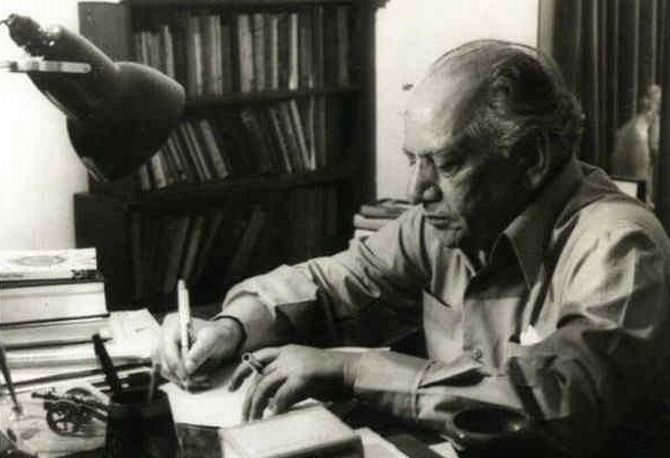Today is the 26th death anniversary of Faiz Ahmed Faiz whose life and works are national assets. Faiz was a torchbearer of the glorious traditions set by great Urdu poets such as Ghalib and Iqbal. Faiz distinguished himself as a proponent of a revolutionary vision, which blended the romance of classical Urdu poetry with the idealism of revolutionary struggles. Faiz’s political ideology provided modern Urdu verse an unprecedented political and romantic expression. Faiz brought Pakistan international acclaim and the world bestowed on him the highest honours, including the Lenin Peace Prize (1962). He has also left a corpus of essays, editorials and commentaries from his years in journalism. This body of work still needs to be fully assessed for its literary dimensions. Faiz’s literary career coincided with the emergence of Pakistan and its unfortunate history of political instability and militarisation, which isolated its majority Eastern wing and resulted in its break-up in 1971. His famous poem “Yeh Daagh Daagh Ujala” remains an apt comment on the creation of a ‘moth-eaten’ Pakistan, which continues to grapple with issues of identity. The Pakistani state treated him shoddily as he remained under arrest for extended periods or in exile.
The decade of the 1970s witnessed a change when Bhutto appointed him as Chairman of the National Council of the Arts. Faiz authored Pakistan’s Culture Policy of 1972, which was partially implemented. This new cultural discourse broke the hegemony of the state-imposed definition of Pakistani identity that had excluded its rich pre-Islamic cultural heritage and marginalised its regional cultures. Before the goals of the 1972 Policy could be realised, Bhutto was overthrown and killed by the military junta. Zia’s dark rule reversed whatever policy shifts were made in the decade of the 1970s. Faiz passed away in 1984 and did not live to see the full extent of the destruction of Pakistani society scripted by Ziaul Haq and his cronies.
The country continues to struggle with the demons of extremism, jihad, and the ubiquitous role of intelligence agencies in public life. It is paramount that the 1972 Culture Policy, buried by right-wing officialdom, be made public and used as a framework for handling the current crises that we face in keeping the federation together and for fighting the enemy within. Faiz Ahmed Faiz’s vision of a socially just, secular, and plural Pakistan remains valid even today. February 13, 2011 will mark Faiz’s centennial birth celebrations and the government should ensure that his poetic and political legacy are reiterated and disseminated to the younger generation fittingly. Pakistanis will continue to sing “Hum Dekhenge” until we achieve civilian democratic ascendancy and a socially just redistributive economic system.



